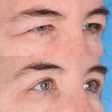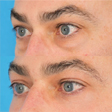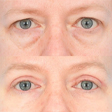If you’re considering a blepharoplasty—commonly known as eyelid surgery—you’re not alone. This popular cosmetic procedure can refresh tired eyes, improve vision obstructed by drooping lids, and help you feel more confident in your appearance. But before you book your consultation, here are five important things you should know:
- Blepharoplasty Can Be Cosmetic or Functional
Not all eyelid surgeries are about aesthetics. While many patients choose blepharoplasty to reduce puffiness, wrinkles, or sagging skin, others need it to correct vision problems caused by drooping upper lids. Your surgeon will determine whether your case is cosmetic, functional, or both—and this can affect insurance coverage. - Recovery Is Quick, but There’s Still Downtime
Most patients return to work and social activities within 7–10 days, but swelling and bruising can last a bit longer. You’ll need to take it easy for the first few days: use cold compresses, sleep with your head elevated, and avoid strenuous activity to help speed up healing. - Scarring Is Minimal and Well-Hidden
One of the perks of blepharoplasty is that incisions are typically made along natural creases or inside the eyelid, making scars barely visible once healed. A skilled surgeon will focus on technique and placement to ensure a natural-looking result. - Results Are Long-Lasting, but Not Immune to Aging
Eyelid surgery can take years off your appearance, but it doesn’t stop the aging process entirely. While results can last a decade or more, factors like genetics, sun exposure, and lifestyle will continue to affect your skin over time. - Choose a Specialist—Not Just a Surgeon
Your eyes are delicate, and blepharoplasty requires precision. Look for a board-certified facial plastic or oculoplastic surgeon with specific training and experience in eyelid procedures. Ask to see before-and-after photos and read patient reviews to find someone you trust.
Thinking About Eyelid Surgery?
The best way to know if blepharoplasty is right for you is to schedule a consultation. A qualified surgeon will examine your eyelids, discuss your goals, and help you understand your options.


